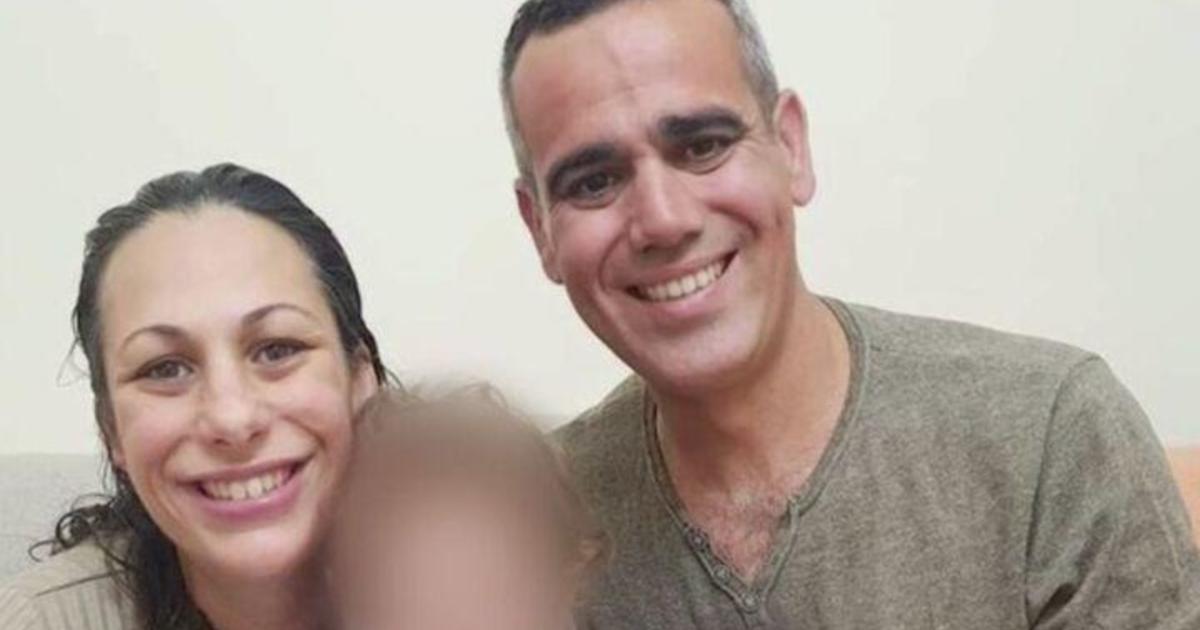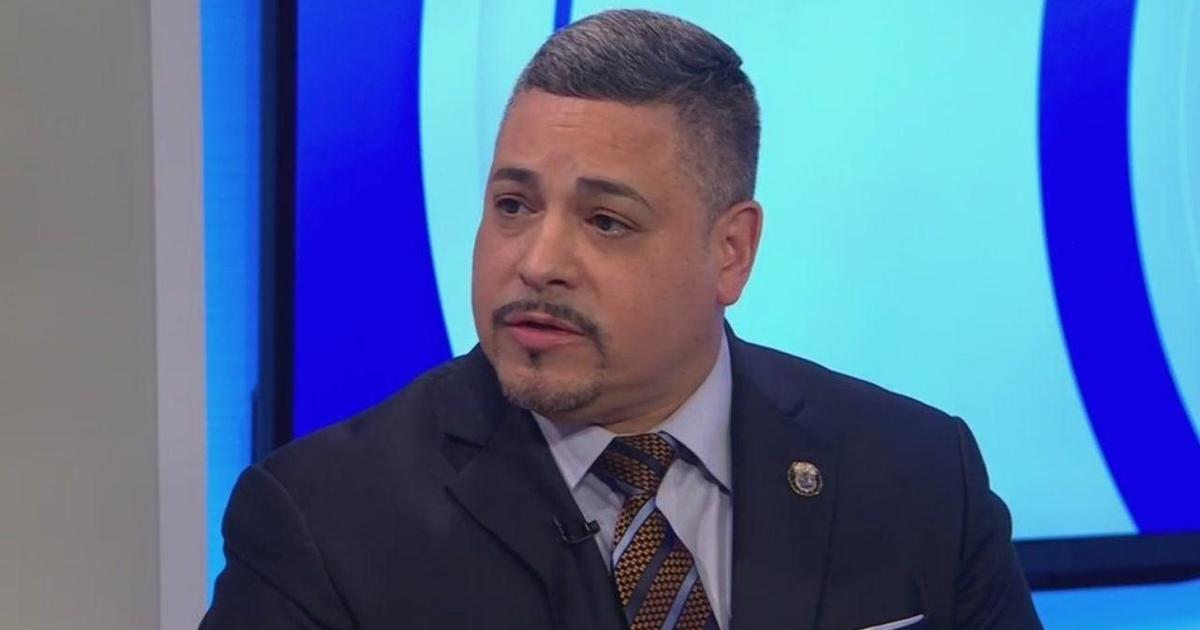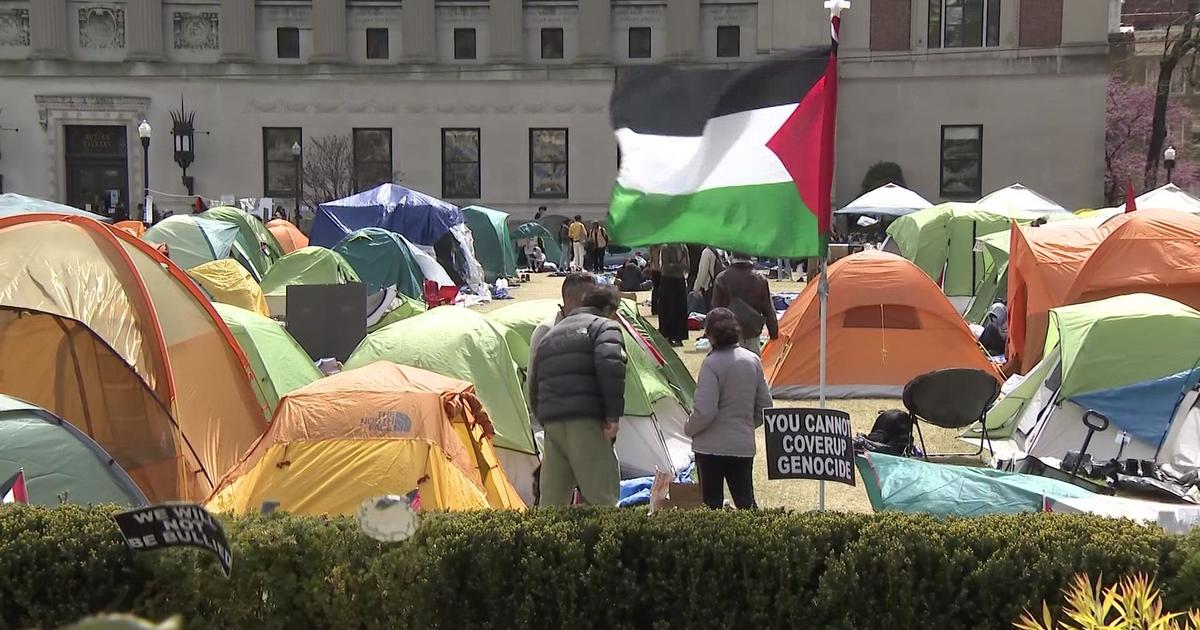Terror Suspect Al-Masri Pleads Not Guilty In Manhattan
NEW YORK (CBSNewYork/AP) -- An Egyptian-born preacher pleaded not guilty in Manhattan Federal Court on Tuesday to charges that he conspired with Seattle men to set up a terrorist training camp in Oregon.
Abu Hamza al-Masri entered the plea shortly before U.S. District Judge Katherine B. Forrest set an Aug. 26 trial date for al-Masri. He's also accused of helping abduct 16 hostages, two of them American tourists, in Yemen in 1998.
WCBS 880's Peter Haskell reports
Podcast
"He's presumed innocent," his court-appointed lawyer, Jeremy Schneider, said outside court afterward. When someone asked Schneider whether he thought his client was a terrorist, he snapped: "That's a silly question."
Schneider said his client prefers to be known as Mustafa Kamel Mustafa, the name listed first on his indictment. Abu Hamza and Abu Hamza al-Masri are listed as aliases.
There was no mention in court Tuesday about access to the prosthetics -- including a hook -- that Mustafa uses in place of the hands he says he lost fighting the Soviets in Afghanistan, but Schneider said outside court that it was a problem for him.
"I believe he has use of them for a certain part of the day but not long enough to allow him to function the way he should function," he said. "As you can well imagine, he's not happy he's in a situation like this without use of his prosthetics."
In addition to paying for his lawyer, U.S. taxpayers may also have to pick up the tab for a new prosthetic device.
A prosthetic hook is a tool that can also be a weapon, so al-Masri appeared in court without it and has been only allowed to use it in jail for brief periods each day, CBS 's Tony Aiello reported.
1010 WINS' Juliet Papa reports
Podcast
The Post reported al-Masri may be provided with a less-threatening prosthetic hand, courtesy of U.S. taxpayers. According to some estimates, that could run anywhere from $12,000 to $25,000.
That amount, which could be spent on someone who hates the United States, garnered plenty of reaction in lower Manhattan on Tuesday.
"Bad enough we have to spend our money for a person who promotes terror," one New Yorker said.
"I think it's very wrong," said another.
"I think the better we treat them, the less chance there is of more terrorism," another New Yorker said.
He also is missing an eye. His lawyers in England said he suffers from depression, chronic sleep deprivation, diabetes and other ailments.
Earlier Tuesday, two men brought from England to face terrorism charges made their first appearance before another Manhattan judge.
Khaled al-Fawwaz, 50, and Adel Abdul Bary, 52, are charged with participating in the bombings of embassies in Tanzania and Kenya in August 1998. The attacks killed 224 people, including 12 Americans. They were indicted in a case that also charged Osama bin Laden.
Both pleaded not guilty on Saturday. The judge on Tuesday set their trial date for October 2013.
Assistant U.S. Attorney Sean S. Buckley said the men made statements to officers in the United Kingdom that may be part of the evidence at a trial he estimated would last up to three months.
Mayor Michael Bloomberg said the NYPD can handle the security of the high-profile cases.
"You can rest assured that whoever comes here will get the protection that they deserve, like everyone else, and that the public will be well protected," he said. "New York City knows how to protect people and when somebody is on trial, they are well protected in courthouses."
Two other men brought from Britain were arraigned in Connecticut on Saturday on terrorism charges.
Al-Masri became well-known in the 1990s as his Finsbury Park Mosque in London became a training ground for extremist Islamists, including Sept. 11 conspirator Zacarias Moussaoui and attempted "shoe bomber" Richard Reid.
He had been jailed since 2004 in Britain on separate charges.
The British agreed to send al-Masri to New York only after the U.S. agreed it would be a civilian, not military, trial and the death penalty was off the table.
Al-Masri faces life in prison if convicted of terror acts. His lawyer said the prosthetic issue needed to be settled so al-Masri can read and write and help his own defense.
(TM and Copyright 2012 CBS Radio Inc. and its relevant subsidiaries. CBS RADIO and EYE Logo TM and Copyright 2012 CBS Broadcasting Inc. Used under license. All Rights Reserved. This material may not be published, broadcast, rewritten, or redistributed. The Associated Press contributed to this report.)



